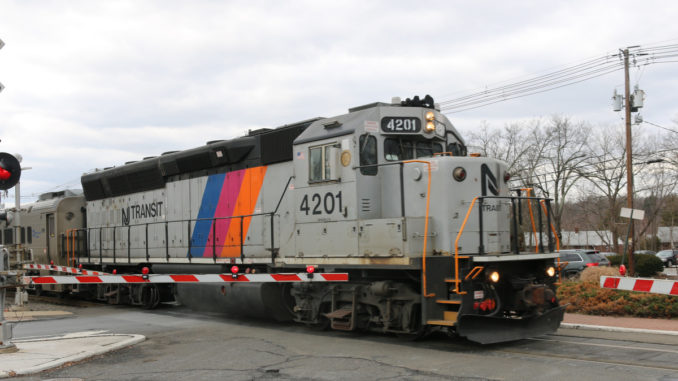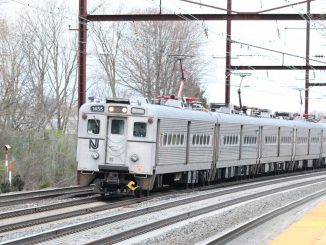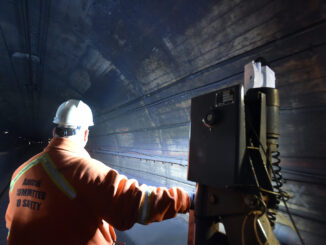
N.J. Transit has started using a high-pressure power washing system to clean and remove leaves from the rails throughout the fall season.
The transit agency has deployed a pair of AquaTrack machines to remove the oily residue left behind by fallen leaves on the tracks. The goal is to prevent train delays caused by “slippery rail” conditions.
N.J. Transit has used the AquaTrack system, which consists of two 250-horsepower diesel-engine units mounted on a flat car with an operator control cab, since October 2003. Two pressure-pump units dispense water up to 20,000 pounds per square inch directly to the top of the rail. The process uses 17 gallons of water per minute.
The original AquaTrack operated primarily on the M&E and Montclair-Boonton lines, which face challenges including the hilly areas around Glen Ridge and Summit stations, washing the rails twice a day Monday through Friday — overnight and again during midday hours. The Pascack Valley and Main/Bergen County lines are usually covered on weekends.
In 2016, N.J. Transit unveiled a second AquaTrack unit, which allows the cleaning process to maintain a larger coverage area in helping to prevent delays caused by slippery rail.
Fallen leaves left on rail tracks can cause a condition known as “slippery rail” – a challenge facing all railroads in the Northeast and other parts of the world where deciduous trees are prevalent. The decaying leaves create an oily residue that coats the rails and causes poor traction. The decreased train speeds, in turn, create delays.
N.J. Transit trains are also equipped to spray sand on the rails in front of their wheels to increase traction.




